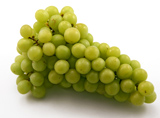
Grape Juice Slows Down Heart Disease & Protects from Cancers
A new small study shows people with heart disease may be able to slow down its progression by drinking purple grape juice.
Several studies have linked consumption of grape juice and wine to a reduction in heart disease risk. Now, researchers at the University of Wisconsin Medical School in Madison have found that purple grape juice slowed the oxidation process of low-density lipoprotein cholesterol, or LDL cholesterol, known as the “bad” cholesterol that clogs arteries.
Blood samples were taken from 14 people with heart disease. After two weeks in which people drank 12 to 14 ounces of grape juice a day, researchers found delayed LDL oxidation. Purple grape juice is being studied because it has more flavonoid compounds than white grape juice.
Full or powerful antioxidants, including astringent tannins, flavones and anthocyanins, grapes help to prevent ‘bad’ LDL cholesterol from oxidizing and blood from clothing, and so protect the heart and the circulatory system. High in both water and fibre, grapes are also a great aid for detoxifying the gut and the liver.
The European grape has been difficult to grow in West Virginia because it is very susceptible to cold injury and requires long, warm summers for proper fruit maturation. Disease and insect susceptibility are also serious problems with V. vinifera types. With proper site selection and training systems to allow recovery from winter damage, European grapes can be grown in some areas of West Virginia. Wineries prefer vinefera grapes for wine production and will often pay a premium price for them.
The American grape typified by the cultivar Concord is winter hardy and disease resistant. American grapes are the most commonly grown grapes east of the Rocky Mountians. Many new cultivars of excellent seedless table grapes, very different from Concord, have been developed.
Muscadine grapes are most commonly grown in the south because they are only hardy where temperatures rarely fall below 10 oF (-12 oC). Few places in West Virginia meet this requirement. The fruit and culture of Muscadine grapes is different from other grapes and will not be covered in this paper.
French hybrids are usually superior to American types for wine and are more cold hardy and disease resistant than European types. Several of these cultivars have been tested in West Virginia for their adaptability to eastern climatic conditions (see section on cultivars).


